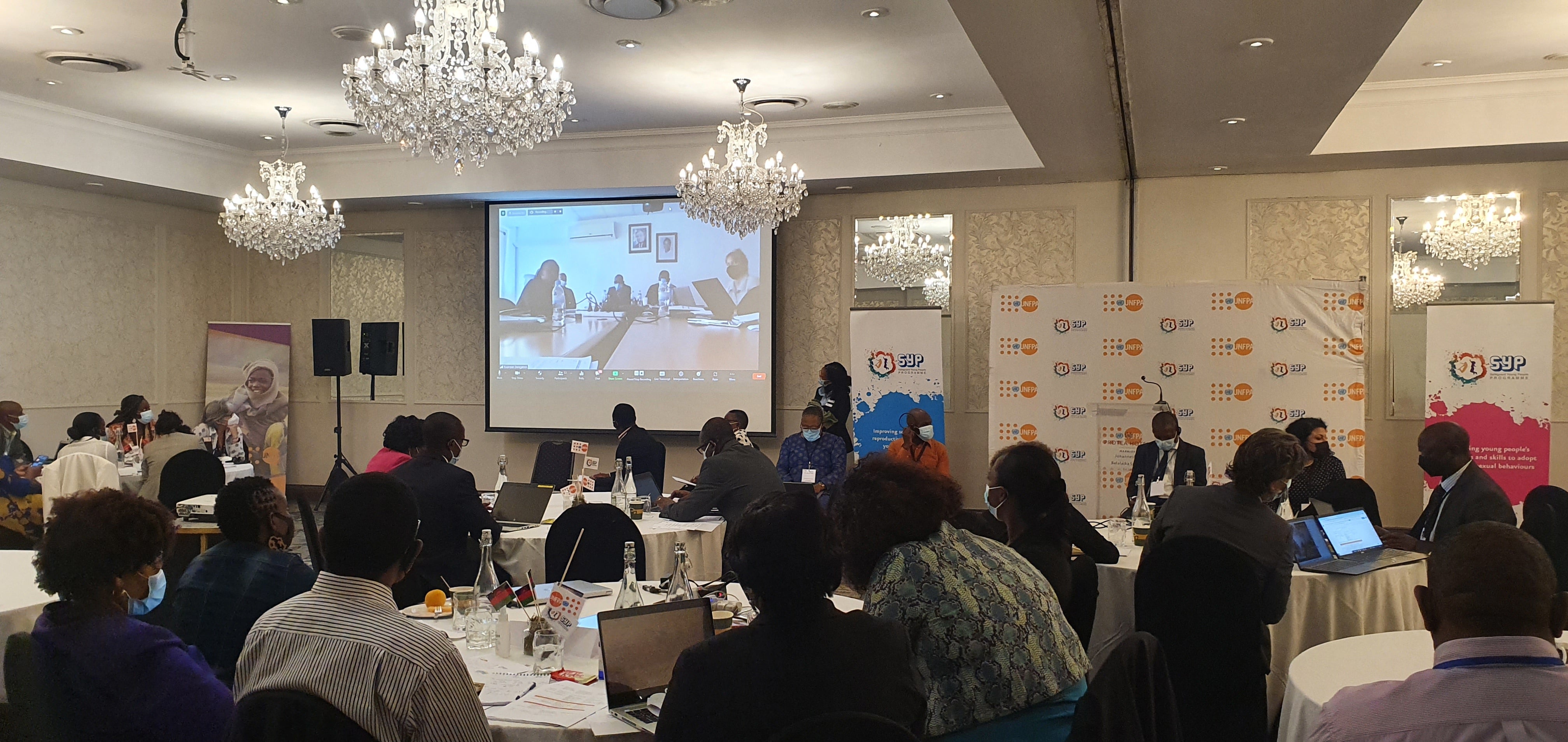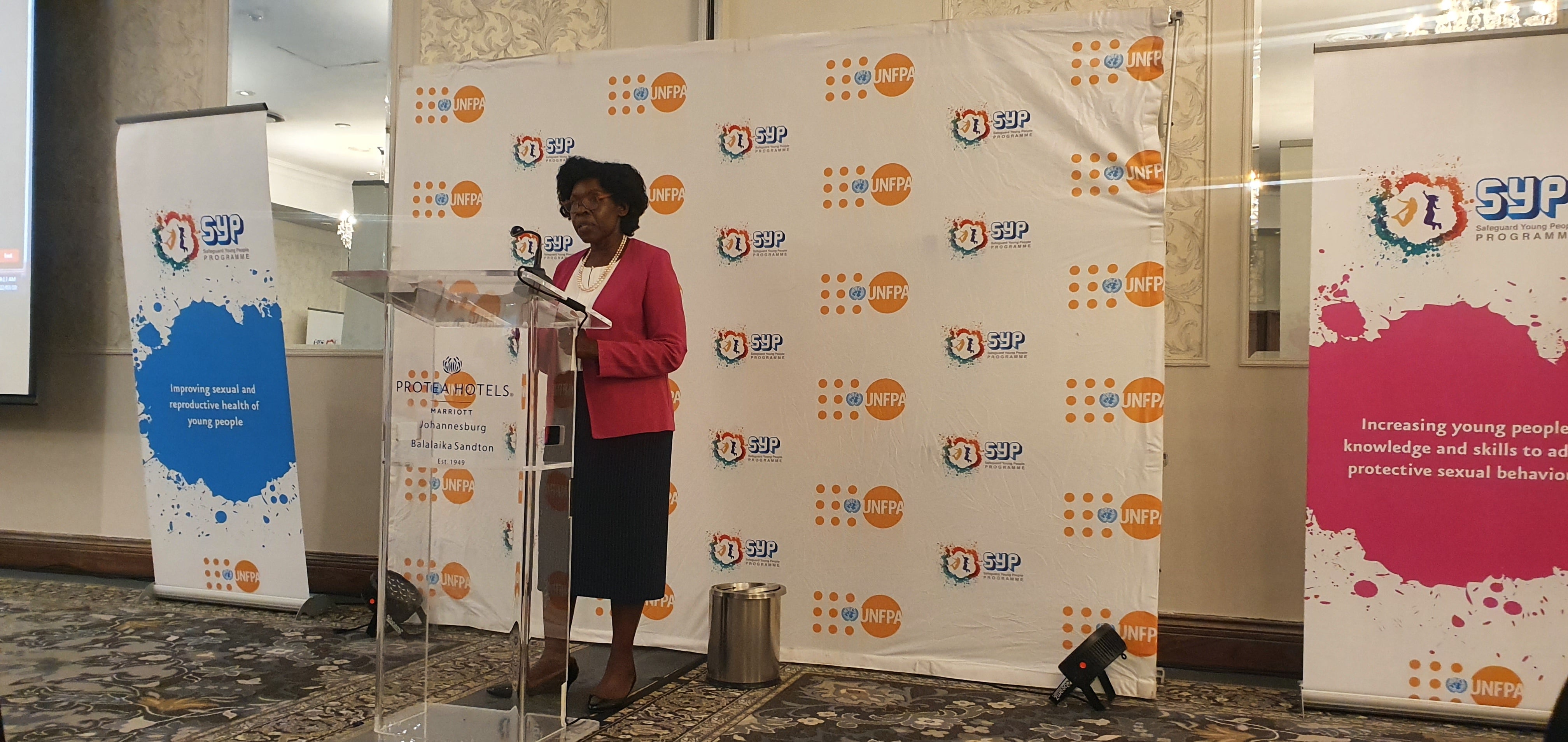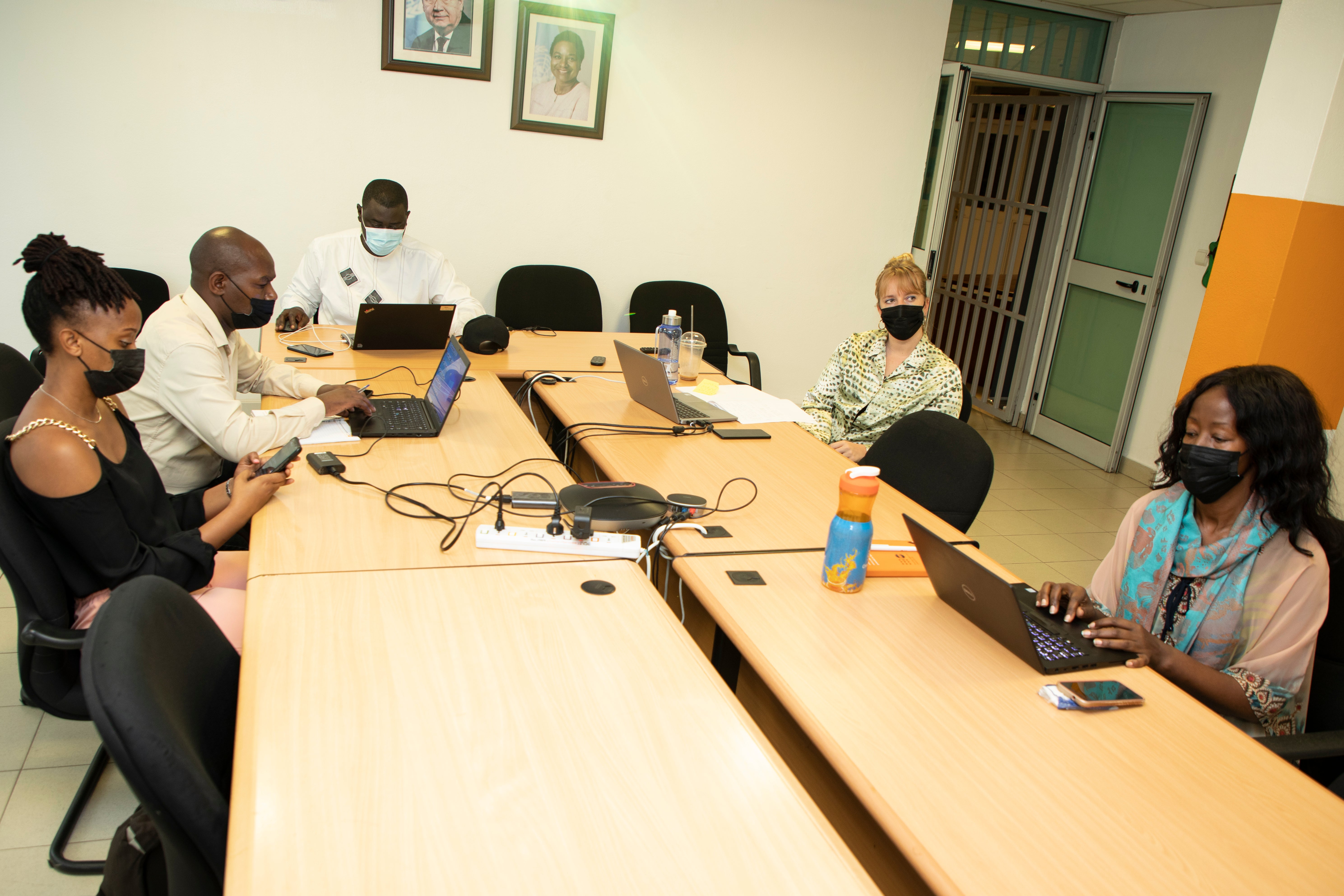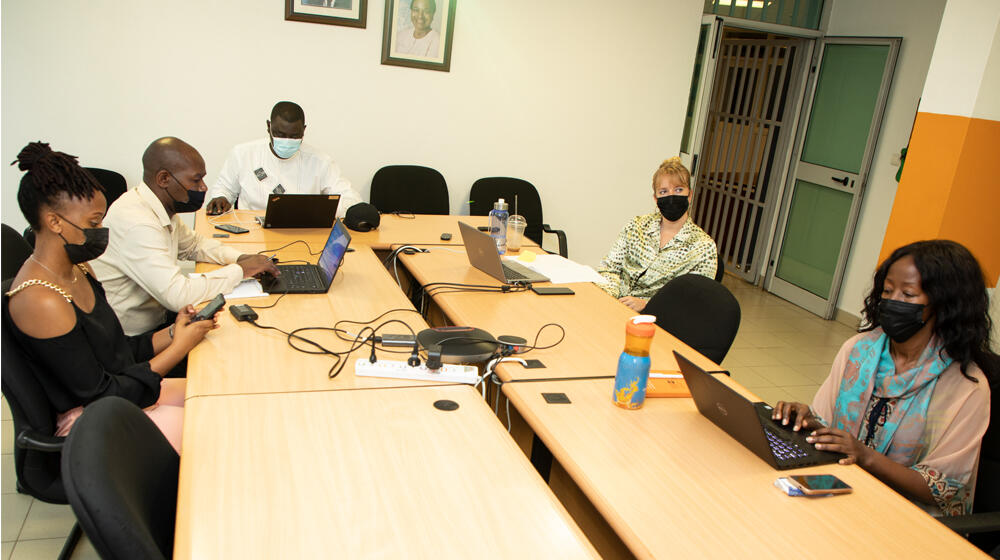The Safeguard Young People programme (SYP) is the flagship youth programme of the United Nations Population Fund (UNFPA) East and Southern Africa Regional Office (ESARO). UNFPA envisions an East and Southern Africa where all adolescents and young people aged 10-24 are healthy, productive and empowered; free from sexually transmitted infections including HIV, unintended pregnancies, child marriages and gender-based violence and equipped with comprehensive knowledge and skills regarding their sexuality, rights, and health seeking behaviours.
In Rwanda, the SYP programme has been implemented since May 2021, at national level and in the 3 UNFPA supported districts - Rusizi, Nyamasheke and Karongi. The programme intends to greatly contribute to improved Sexual Reproductive Health status of young people by supporting youth and adolescents to access ASRH services, including Menstrual Health, Youth Friendly Services and Comprehensive Sexuality Education.
From the 10th to 11th March 2022, ESARO hosted a two days Safeguard Young People Steering Committee Meeting, in which representatives from 12 countries discussed strategy, planning and best practices concerning Adolescents Sexual and Reproductive Health and Rights.

The Rwanda Delegation sharing best practices on integration mental health into Comprehensive sexuality education
In her opening remarks, Beatrice Mutali, Deputy Regional Director / UNFPA ESARO acknowledged the Safeguard Young People Program excellent results in the Sexual and Reproductive Health for adolescents and youth and commended Swiss embassies, the Swiss Development Cooperation and the embassy of Netherlands who made it possible that Safeguard Young People is implemented in four more countries, including Rwanda.
“With Safeguard Young People we combat Gender based violence, we prevent teenage pregnancies, unsafe abortions and harmful practices and with the support of the donors it is possible to spread these important achievements in four more countries” she said.

Beatrice Mutali, Deputy Regional Director / UNFPA ESARO delivering the opening remarks
Addressing the participants, Mr. Amir Fouad, Assistant Regional Director and Head of Domain HIV/SRHR at the Swiss Development Agency, expressed how they are appreciating the outcomes of the Safeguard Young People Programme and the possibility to extend it to four more countries.
“SYP is coming to an end in December 2022 for the 8 southern Africa countries, therefore we have to think about how this Programme can become sustainable. We need the ownership of the governments in order to make this a reality.” He said.
Sharing Best Practices
Botswana, Malawi, South Africa, Namibia, Eswatini, Tanzania, Zimbabwe, Zambia, Lesotho, Mozambique, Angola and Rwanda shared their respective best practices in order to inspire their colleagues and forging South-South Cooperation.
Namibia, per example, shared with the Steering Committee their efforts in order to address climate change integrated in Sexual and Reproductive Health and Rights and more specifically in Comprehensive Sexuality Education.
“After the training of young people on the interrelation of climate change and Sexual and Reproductive Health and Rights they understood how a drought pandemic can influence economic stability which can lead to Gender Based Violence but they also learnt what to do when a flood is hitting a village and how to access the basic sexual and reproductive health services.” Said Ms. Kakuna Venokulavo, Adolescents and Sexual Reproductive Health Officer, UNFPA
The Rwanda Delegation, composed of AfriYAN Rwanda, Swiss Agency for Development and Cooperation in Rwanda, Rwanda Education Board, Swiss Tropical and Public Health Institute, and UNFPA, shared their best practice on integrating mental health into Comprehensive sexuality education.
“Comprehensive Sexuality Education prepares Adolescents and Youth to make a smooth transition from childhood to adulthood by imparting knowledge and skills to make informed decisions about their lives; quality Comprehensive Sexuality Education can enhance feelings of self-determination, competence, and healthy relationships, which are important for mental health and problem solving abilities.” said Ms Rachel Atete. Afriyan Rwanda

Representatives from AfriYAN Rwanda, Swiss Agency for Development and Cooperation in Rwanda, Rwanda Education Board, Swiss Tropical and Public Health Institute, and UNFPA Adolescent and Youth team attended the meeting virtuary on behalf of Rwanda


